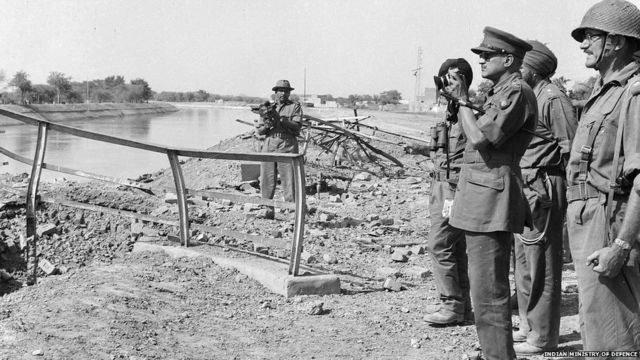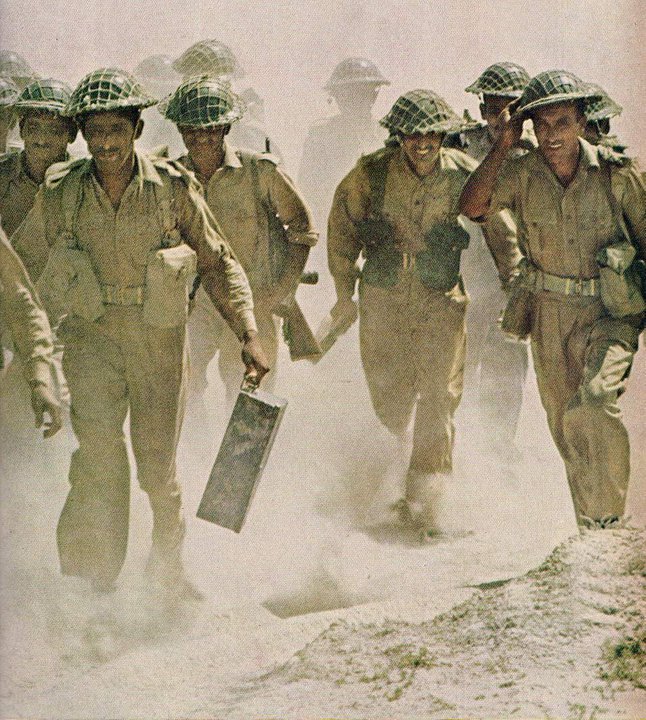Annually, Pakistan observes Defence Day in commemoration of the courageous sacrifices made by the Pakistani armed forces during the 1965 war. The 6th of September, known as Defence Day, holds paramount importance in Pakistan’s historical narrative.
On September 6, 1965, the Indian army crossed Pakistan’s international borders without a formal declaration of war. This critical juncture united not only our valiant soldiers but also the entire nation into a cohesive force to safeguard our homeland. Together, they repelled the Indian Army, pushing them back on all fronts.
Unveiling the Comprehensive History of September 6th

On September 6, 1965, an incursion by the adversary transpired along our borders, with the intention of penetrating areas that had come under attack. This was in response to Pakistan’s military advance in India-Occupied Kashmir. The focal points of their aggression were primarily Lahore, Sialkot, and the desert regions of Sindh. The conflict endured until September 22, 1965, when a ceasefire agreement, overseen by the United Nations, was mutually accepted by both parties.
The War in Kashmir

In the context of Kashmir, significant developments unfolded. Indian Prime Minister Lal Bahadur Shastri exacerbated tensions by pursuing measures aimed at deeper integration of Kashmir into India’s political framework. He asserted that the Kashmir issue held a subordinate status in the context of India-Pakistan relations.
The utilization of Articles 356 and 357 of the Indian Constitution in the Kashmir State, granting the President of India the authority to establish and enact Presidential Rule in Kashmir, represented an endeavor to fully incorporate Kashmir into the Indian Union.
The Lahore Offensive

At 3:00 AM, September 6, 1965, Indian forces crossed the international border into West Pakistan, initiating a three-pronged offensive against Lahore, Sialkot, and Rajasthan, all without a formal declaration of war. A fierce tank battle ensued on the plains of Punjab. This Indo-Pak conflict, initially confined to domestic borders, escalated into an international war, prompting discussions on the concept of superpower influence.
Diplomatic efforts, primarily under the umbrella of the United Nations, were instrumental in seeking a cessation of hostilities, resulting in a truce taking effect on September 23, 1965.
The Inevitable Defence By Our Military

Our armed forces successfully defended not only the targeted regions but also safeguarded the lives of countless civilians and their homes. Therefore, it is our solemn duty to pay homage and provide unwavering support to all the dedicated members of our nation’s military who laid down their lives. They made this sacrifice so that we, along with our families and fellow citizens, could enjoy a peaceful existence.
This expression of gratitude should also encompass the military personnel who, alongside our martyrs, made sacrifices and survived to recount their experiences.
Martyrs Of The Defence Day

Many of our national heroes have earned prestigious decorations for their exceptional valor and bravery. Major Raja Aziz Bhatti, for his extraordinary role in defending the Lahore Bedian region in 1965, was honored with the highest military award, Nishan-e-Haider. He is among a select group of gallant military personnel who have sacrificed their lives for Pakistan’s defense and received this esteemed recognition.
Defence Day—A Testament to a Strong and Proud Nation Defence Day serves as a reaffirmation of our identity as a resilient and proud nation, asserting that no foreign power, however formidable, can intimidate us. Our armed forces symbolize all that and more. They embody the unwavering spirit, valor, and tactical expertise of the great Pakistani nation. Defence Day is a day of commemoration and celebration, reminding us to stand strong and inspire the youth and children of our nation.
How Defence Day is Commemorated Across the nation, Defence Day is marked by a series of military parades and activities, showcasing the latest advancements in modern warfare tactics. Often, on this day, test launches of newly developed weaponry are conducted. These activities serve the dual purpose of honoring our veterans and showcasing our military prowess. Our television channels and social media platforms also play a pivotal role in achieving these objectives.
Parades
Pakistan’s Army showcases its cutting-edge missiles, tanks, artillery, army aircraft, helicopters, and equipment used by various corps, including Engineers, Electrical and Mechanical Corps, Army Air Defence, Signals, Army Service Corps, and Medical Corps. These events are open to the public at specific venues, and they are also broadcasted on national television channels. The day is filled with national songs, special documentaries about the events of September 6, 1965, and the stories of those who made the ultimate sacrifice for the country’s security. These accounts serve to educate the younger generation about the burden of responsibility they carry as the future of Pakistan.
The Changing of the Guard ceremony takes place at Mazar-e-Quaid, Karachi, where cadets from the Pakistan Air Force Academy assume and relinquish command of the Guard of Honor.
The Role of the Military in Our Nation: We should take immense pride in our formidable armed forces and their indispensable role in safeguarding our nation’s borders and security. Despite economic challenges, Pakistan is shielded from external threats, thanks to what many consider one of Asia’s most robust military forces. We pay tribute to their sacrifices and honor our past war heroes.
However, our military is not only engaged in warfare but also plays a pivotal role in peacetime operations within the country and in humanitarian missions abroad. Pakistan’s armed forces frequently carry out humanitarian operations under UN Peace Missions in disaster-stricken countries and provide national relief services within Pakistan during events such as floods, earthquakes, and other natural calamities. Additionally, many military-controlled institutions, including schools, universities, hospitals, and more, often provide essential services to civilians.
Pakistan Emerged As A More Powerful Nation After The War Of 1965

Following the September 1965 conflict with India, Pakistan emerged as a formidable and self-assured nation, filled with pride for both itself and its military forces. It was a time when the entire nation stood united in the face of India’s threat. Achieving success in war requires unwavering national unity and unwavering support for our armed forces on the front lines.
With the support of the government, Pakistan’s Armed Forces thwarted India’s blatant aggression along the international border, exacting a heavy toll by capturing four times more territory than India. This resilience compelled India to agree to a ceasefire, return to the negotiation table, and vacate each other’s territories. It was undoubtedly a moment of great glory, a day that future generations should remember as they pay homage to the soldiers and civilians of that era.
Every Pakistani holds the spirit of brotherhood in their hearts. If anyone dares to harm one of us, we will all stand together as one nation. We are a nation devoid of caste distinctions and religious prejudices, bound as brothers and sisters under a single flag. When we unite, we can impart a lesson that will not be easily forgotten.
How We Can Make The Events Of 1965 Memorable
Paying tribute to our national heroes is always a timely endeavor. We can organize school or community events at any moment to honor the dedicated men and women in uniform who have safeguarded our nation. Additionally, we should utilize social media to raise awareness about their importance and contributions. During conversations with our family and friends, we can also engage in discussions about the military’s significance and its constitutional role.
If these discussions inspire young individuals to consider joining the military and serving their country selflessly, it would be a remarkable outcome.